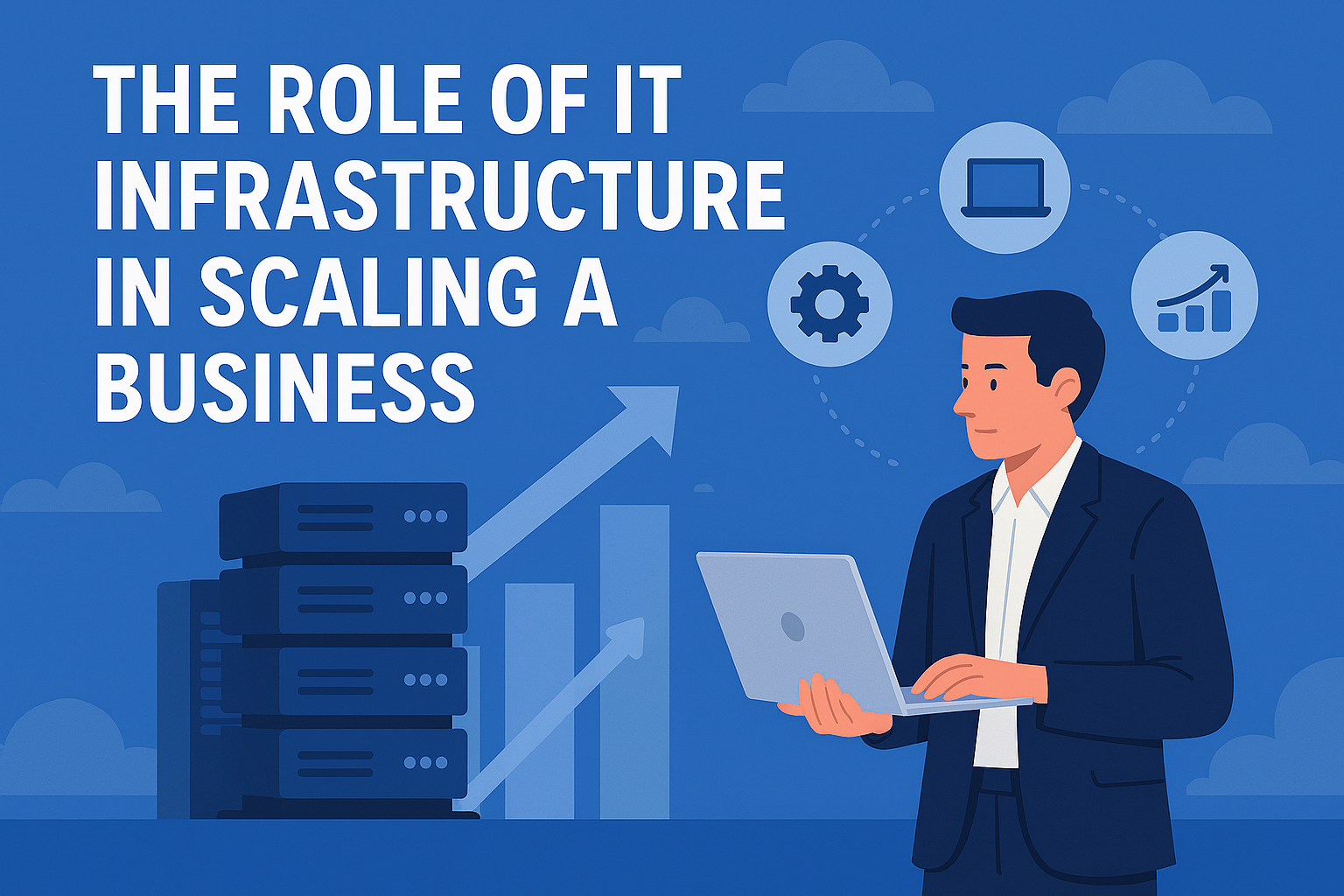The Role of IT Infrastructure in Scaling a Business
Scaling a business is no longer just about increasing headcount or opening new branches. In today’s digital-first economy, the role of IT infrastructure in scaling a business is fundamental. From cloud computing to network security, the right systems enable companies to handle higher workloads, improve collaboration, and remain agile in a competitive market.
Why IT Infrastructure Matters for Growth
A reliable IT infrastructure acts as the backbone of every growing organization. It supports daily operations, secures data, and empowers employees with the tools they need to succeed. Businesses aiming to scale must invest in:
-
High-performance servers and storage to accommodate growing data.
-
Scalable networks that ensure seamless communication.
-
Cloud solutions to eliminate hardware limitations.
Without these essentials, growth may be slowed by downtime, security risks, or inefficiencies.
Key Components of a Scalable IT Infrastructure
To achieve sustainable expansion, companies should focus on the following elements:
-
Cloud Computing Platforms
Cloud services allow businesses to scale resources up or down without heavy upfront investments. They also simplify disaster recovery and enable remote collaboration. -
Robust Networking Solutions
A stable network ensures uninterrupted connectivity for employees, clients, and applications. As a business grows, advanced routers, switches, and bandwidth optimization become vital. -
Data Security and Compliance
Scaling means more data to protect. Firewalls, intrusion detection systems, and regular backups safeguard business continuity while meeting regulatory standards. -
Hardware and Endpoints
Upgrading workstations, servers, and storage systems ensures teams have the speed and capacity to perform at their best. -
IT Support and Monitoring
Proactive support helps detect issues before they impact performance, allowing smooth business operations.
Benefits of Investing in IT Infrastructure
A forward-looking IT strategy delivers measurable advantages:
-
Improved Productivity: Teams work faster with reliable systems.
-
Cost Efficiency: Scalable solutions, such as virtualization and the cloud, minimize hardware costs.
-
Enhanced Security: Advanced cybersecurity measures protect valuable assets.
-
Business Agility: Organizations can adopt new tools or enter markets with confidence.
These benefits underline the importance of seeing IT as a strategic asset rather than an expense.
Best Practices for Building Scalable IT Infrastructure
To maximize return on investment, consider these best practices:
-
Assess Current Systems: Identify gaps that may hinder growth.
-
Adopt Cloud-First Strategies: Prioritize platforms that support flexibility.
-
Implement Strong Cybersecurity Protocols: Encrypt data and enforce multi-factor authentication.
-
Plan for Future Needs: Choose solutions that align with long-term objectives.
-
Partner with IT Experts: Collaborating with specialists ensures proper configuration, maintenance, and upgrades.
Conclusion
The role of IT infrastructure in scaling a business cannot be overstated. A strong, flexible, and secure technological foundation allows organizations to meet customer expectations, support innovation, and expand without disruption. By strategically investing in servers, networks, cloud solutions, and cybersecurity, businesses set themselves up for sustained success in an increasingly connected world.






